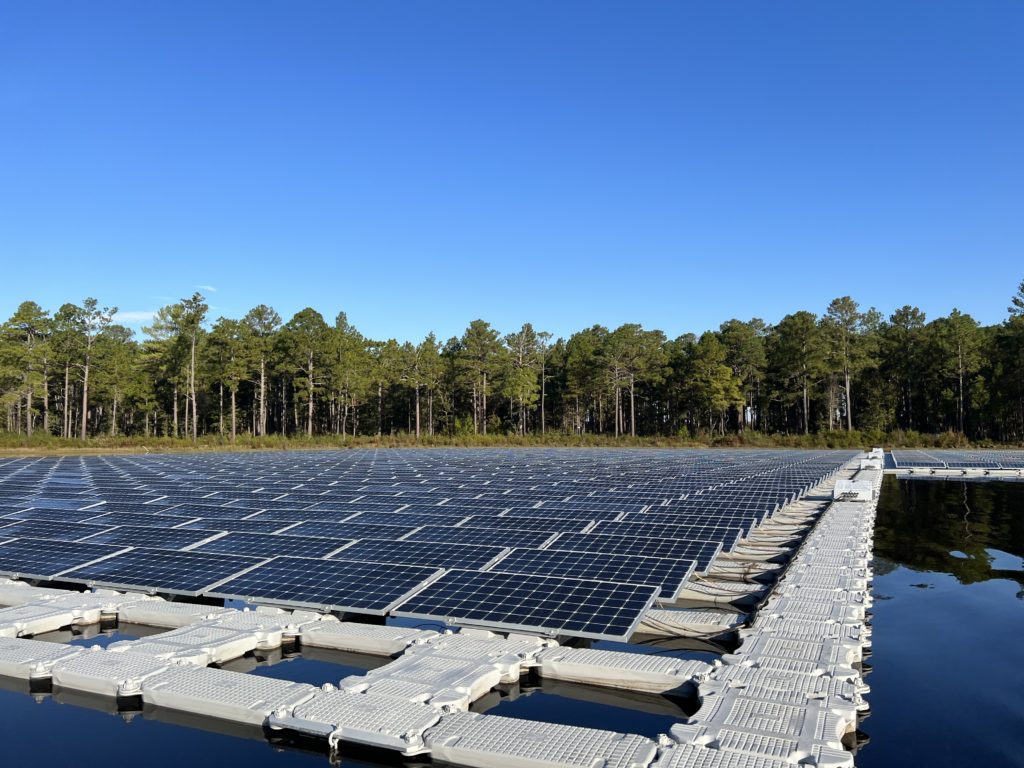Procore set out to find the companies, projects and individuals that stood out for their bold achievements in construction. Among the 27 outstanding finalists selected, nine were named winners of the 2022 Groundbreaker Awards. This article is the third in a nine-part series spotlighting each winner.
In 1904, James B. Duke set out with a team to generate electricity through lakes and dams along South Carolina’s Catawba River. Since that project, Duke Energy has been committed to providing innovative power solutions across America — even to Walt Disney World.
Today, Duke Energy is executing an aggressive clean energy strategy to create a smarter energy future for its customers and communities. The company is also investing in major electric grid upgrades, expanded battery storage and exploring zero-emitting power generation technologies such as hydrogen and advanced nuclear.
Their groundbreaking energy solutions are solving unique power requirements across complex projects nationwide. One such project is the largest floating solar plant in the Southeast United States at Fort Bragg—the first for the Department of Defense.

An unprecedented project
In a collaboration with Fort Bragg, Duke Energy installed a 1.1-megawatt floating solar installation on the Big Muddy Lake located at Camp Mackall in North Carolina. As the prime contractor for this Utility Energy Service Contract (UESC), Duke Energy provided technical and contract oversight for the $36 million project that focused on energy resilience and security. Duke Energy worked with Ameresco and D3Energy to assist with design and delivery.
Fort Bragg owns and operates the solar system, which is paired with a 2-megawatt battery energy storage system (BESS). The system supplies power to Camp Mackall from the local grid and provides power during electric service outages.
Terri Stubblefield, senior commercial contract manager at Duke Energy, was excited to provide the government with a unique renewable energy solution. Stubblefield took over project management in 2018, acting as a liaison between the government and Ameresco, and leveraging Procore to keep communications up-to-date.
“We’re really into innovative technology, especially when helping the government,” says Stubblefield. “That’s one of the things we like to do for our customers—providing advanced technology solutions.”
The project team spent a lot of time working through interconnection and technical issues with Fort Bragg. Duke Energy owns the utility grid outside the customer property, however, the utilities on the customer site are privatized.
The project team spent considerable effort resolving technical challenges among the project needs, including the privatized utility that connected back to the regulated Duke Energy utility.
The pandemic also presented supply chain and lead time challenges. For all of these issues, Procore tools were critical in keeping information organized and the team focused on the actions that drove critical path elements.
A central source of truth
The project team leveraged the Documents, RFI, Submittals and Reports tools in Procore, leaning on the platform as its primary construction workflow tool. All project records were stored in Procore. Procore is one of the few cloud platforms that satisfy firewall and other IT security requirements, and therefore one that all stakeholders can use.
“From a document management standpoint, Procore has always been very useful with our federal partners,” explains Stubblefield. ”RFIs were generated using the RFI tool to get questions asked and answered by the right people and having documentation of what those answers were was very helpful.”
Communication and sharing of the correct information during preconstruction activities were critical for success. The project team avoided rework and misunderstanding by enforcing the use of Procore for maintaining and referencing project metrics. Procore’s workflow also helped the team maintain clarity on status of work and responsibility.
“Procore is a single place for communication, document management and record storage,” Stubblefield says. “The government has a lot of cybersecurity and firewalls in place, so it can be difficult to pass documents back and forth. You’ve got to have a central repository for all this information — and they’re always able to use Procore, unlike some other platforms.”
Because it’s a federal government project, Procore also served as a clearinghouse for material that had already been vetted for release for public consumption. While it can be difficult for government projects to flow through some platforms, Procore provided ease of use, needed privacy and a single source of truth for all stakeholders.
Partnering for success
Duke Energy worked closely with subcontractors Ameresco and D3Energy. Ameresco supplied engineering design and execution expertise needed to perform contract work. D3Energy is a specialty solar contractor who has pioneered solar PV installation on water bodies through non-destructive and habitat-safe solutions. The three companies worked together to overcome novel challenges to deliver the largest floating solar system in the Southeast United States.
“Duke Energy’s work with Fort Bragg will lead to better energy efficiency and cost savings at the base,” says Brian Savoy, Duke Energy’s chief strategy and commercial officer. “We’re excited to help put Fort Bragg at the forefront of renewable energy innovation through this unique floating solar facility.”
Truly a team effort, the floating solar installation is testament to Duke Energy’s commitment to providing renewable energy regardless of complexity. Setting a clean energy precedent with this project, Duke Energy continues to innovate for each customer and their unique requirements on every job.
Leave a Reply